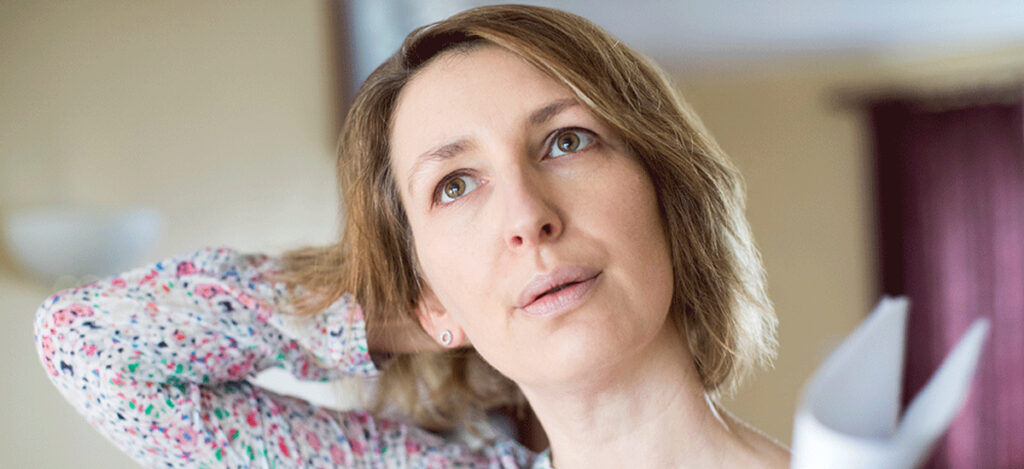Hormone Replacement Therapy occurs from reduced levels of the female sexual hormones. These are estrogen, and progesterone. More of these hormones are imperative in the body. Lower levels resulting from menopause make some women experience hot flushes, irritation, and dryness of the genital area. HRT aids in bringing hormones to normalcy, as it aids many other women. However, age, medical history, and severity of the symptoms do determine whether HRT is to be prescribed. They can make a wise decision over whether to accept HRT and other interventions.
Also known as Menopausal Hormone Therapy or MHRT, Hormone Replacement Therapy (HRT) is a type of therapy for symptoms of hormonal changes. Sometimes, such as when you gain or lose weight, or have fluctuating hormone levels, you could have unwanted side effects. These can be physical or in any other way, it would be emotional I think. It can assist you in understanding when it is possible to decide whether it is safe for you to use hormone replacement therapy.
1. Hot Flashes and Night Sweats
Hot flashes are a hallmark of hormone change and night sweats are the other. They are mostly prevalent among women who are of a menopausal age. Such short and sharp heat waves can be a problem during the night, as well as throughout the day. They or show a need for HRT.
2. Mood oscillation and emotional fluctuation
Mood swings, anxiety, or depression with no apparent reason may be rooted from hormonal imbalance. Hormones such as estrogen and progesterone will cause changes in mood. HRT can help restore balance.
3. Sleep Disturbances
This is because the level of estrogen fluctuates throughout the times of the day, and may lead to sleep problems. If you have some symptoms that indicate poor quality of sleep at night, you might require HRT to help in improving sleep.
4. Vaginal Discomfort and Low Libido
Low levels of estrogen and testosterone mean that a woman cannot be easily aroused, and the vagina becomes dry. If such symptoms lowered your quality of life, HRT could be beneficial to you. Often it returns the body to normal function and some people even report returning to it for a traditional lifestyle or they can tie a normal knot again.
Hormone Replacement Therapy Drugs

However, there are so many other drugs that doctors recommend for hormone supplementation, generally known as Hormone Replacement Therapy or HRT for short. The nutrients are useful for the dissemination of estrogen and progesterone hormones that reduce during the menopausal period. These drugs are supposed to be coping with some of the common complaints about the onset of menopause. Among them are; hot flashes, mood swings, night sweats, and vaginal dryness. It assists in reducing the difficulties some women experience at this stage in their lives.
Hormone Replacement Therapy Drugs List
Gynecologists recommend combined HRT drugs to women who have an intact uterus.
Femoston: A pill, the estrogen estradiol to counterweight moving through the uterus, and dydrogesterone, a progesterone antagonist.
Climopax: It combines oestradiol and norethisterone acetate in a tablet. It provides hormone balance and relieves symptoms.
Evorel Sequi: A patch that alternates between estrogen and a mix of estrogen and progesterone. It delivers a steady release of hormones.
Continuous Combined HRT Drugs
These drugs give a steady supply of estrogen and progesterone. They do not cause monthly bleeding. They are ideal for post-menopausal women.
Kliofem: Contains estradiol and norethisterone, designed for long-term use in post-menopausal women.
Prempro: A combination of conjugated estrogens and medroxyprogesterone, often used for continuous HRT.
Progesterone-Only HRT Drugs
Provera: A tablet form of medroxyprogesterone, prescribed with estrogen for women with a uterus.
Utrogestan: A bioidentical progesterone. Doctors often prescribe Utrogestan for women who prefer a more natural hormone therapy.
This list shows some of the most prescribed HRT drugs for menopausal symptoms. Consult a healthcare provider. They can help find the best option for your health needs.
Hormone Replacement Therapy Men

Many people often misunderstand hormone replacement therapy (HRT). This is especially true of testosterone levels in men. It’s natural for testosterone levels to drop as men age. But hormone therapy doesn’t replace something that’s “missing.” It addresses issues related to levels of this hormone that are low.
Why Testosterone is Important
Testosterone plays a key role in male health, including:
- Sexual development and reproductive function
- Building muscle mass
- Maintaining red blood cell levels
- Supporting bone density
For most men, aging causes a gradual decline in testosterone. It has a minimal impact on health, beyond typical aging.
Controversy Over Hormone Therapy for Aging

Some doctors do not recommend using hormone therapy to supplement the normal decline in testosterone as people age. It could be argued that there is no evidence that healthy men appreciate treatment through testosterone result, result, their testosterone. Levels are low when compared to a young man and as they age, it drops. Some men can enjoy therapy. They are the ones with hypogonadism, which is a medical condition that prevents the production of testosterone. Still, it is not very clear if the therapy is equally helpful to other people.
Hormone Replacement Therapy for the women
The most common reason why women going through menopause use Hormone Replacement Therapy is to reduce the symptoms. As a woman grows older, her body secretes estrogen and progesterone in decreasing amounts, since these hormones are produced in varying quantities throughout her life. This leads to symptoms that decrease the quality of life in sufferers. HRT aids in the restocking of these hormones within your body. HRT treats the estrogen, which results due to menopausal stage. Key reasons for using HRT include:
Relief from Menopausal Symptoms
Taking HRT, you can minimize hot flare, night perspiration, mood swings and dryness of a vagina.
Bone Health
HRT can benefit the patients in preserving on their bone density. This may help decrease the probability of fractures and osteoporosis in women of the postmenopausal group.
Improved Quality of Life
The ones that take HRT say that many of the symptoms which affect sleep, energy, or overall wellness improve.
Forms of Hormone Replacement Therapy
HRT can come in different forms, depending on a woman’s health needs and lifestyle:
Estrogen-Only Therapy: In postmenopausal women, estrogens are often recommended after hysterectomy when progestogens are no longer used.
Combined HRT (Estrogen and Progesterone): Postmenopausal women with a uterus are usually prescribed combined HRT. It shields against endometrial cancer.
Local Hormone Therapy: In the case of vaginal estrogen deficiency, the doctors may prescribe local therapy.
Risks and Considerations
In summary, despite all these benefits of HRT, there are risks associated with the treatment. Depending on the type and duration of the treatment, certain researches have established an association between HRT use and breast cancer, blood clots, and strokes. To begin HRT, women may need to complete a medical history questionnaire. with their provider. Hormone Replacement Therapy aids in addressing climacteric symptoms and enhancing the quality of life. However, it should be done in a way that best suits different people. They should use it under the prescription of a doctor.
Hormone Replacement Therapy Side Effects

Hormone Replacement Therapy has benefits, as well as negative impacts. These effects help both women and men determine whether HRT is suitable for them. The benefits can be great. However, their benefits should be considered against the dangers.
1. Nausea
Another well-known side effect of HRT, though usually temporary and often noticeable during the first weeks of hormone treatment, is nausea. It can happen because the body may react initially to changes in hormonal balance. Usually, this reduces with time, depending on the tolerance capacity of the body.
2. Headaches
Taking HL can lead to headaches, especially in women who have a history of migraine headaches. Fluctuations in the hormone level may cause a headache or compound a migraine. So, dosage should be regularly monitored and, if necessary, corrected.
3. Breast Tenderness
While on HRT, most women complain of either benign breast nodules, breast pain, or both. This is attributed to a portion of the treatment that contains estrogen. It is usually mild. But, it can cause discomfort. If it continues, it may require the intervention of a doctor.
5. Weight Gain
An often observed side effect of HRT is weight gain. It is mostly because of fluid accumulation under the skin in the form of edema, fat deposition, or endocrinal disorders that influence metabolic rates. By maintaining a healthy diet and engaging in some form of exercise, one can also erase this side effect.
6. Increased Risk of Blood Clots
Coombs identified blood clots as one of the major risks of a woman using HRT. This is because women using combined estrogen and progesterone therapies face this Problem. This risk is even higher in postmenopausal women and anyone with a clotting disorder in their family.
7. Breast Cancer Risk
HRT could be associated with an increased risk of breast cancer for women taking long-term combined therapy. The asymptomatic screening examination rates in women should be high. They should tell their doctor about their medical history before they pursue HRT.
Conclusion
In conclusion, HRT can treat menopause and hormonal imbalance symptoms with effectiveness. It can improve many people’s quality of life. Yet, we must weigh the benefits against the risks. These include a higher chance of blood clots, breast cancer, and other side effects. A healthcare provider must guide a personalized approach. This ensures the therapy meets individual health needs. Regular monitoring of HRT will maximize its benefits and reduce risks. Tool lifestyle changes and maintain open communication with your doctor.
FAQs
What is hormone replacement therapy?
HRT uses hormones to ease symptoms of hormonal imbalances, especially during menopause. It replenishes estrogen, progesterone, or testosterone levels in the body.
What is the best method of hormone replacement therapy?
The best hormone replacement therapy varies by individual needs. It often includes patches, injections, gels, and pills. Consulting a healthcare provider determines the most suitable approach.
What does HRT do for a woman?
HRT helps women with menopausal symptoms. These include hot flashes, night sweats, and vaginal dryness. It helps maintain bone density and improve life during menopause.
As a versatile and creative content writer, I craft compelling narratives that captivate and engage readers. With a keen eye for detail and a passion for storytelling, I transform ideas into impactful content. Clients choose me for my ability to understand their vision, deliver high-quality work on time, and provide a unique voice that resonates with their audience.

